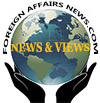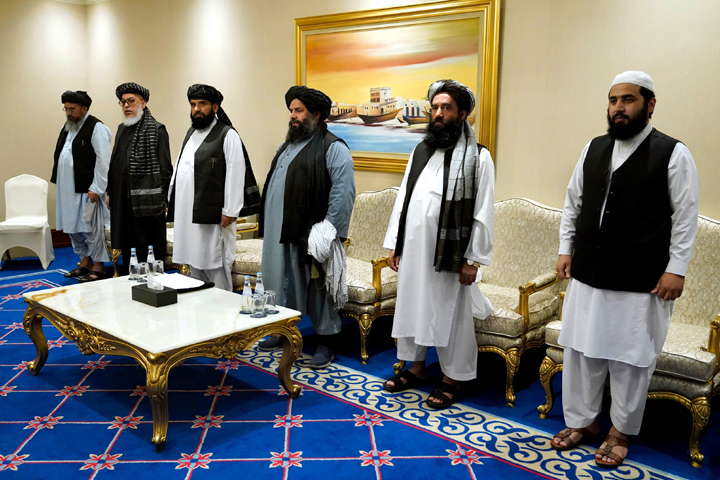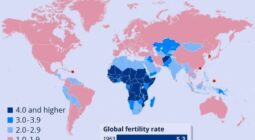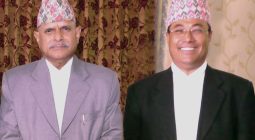After the Vietnam War, August 15, 2021, will remain as a dark day in the history of the United states.
On August 15, 2021-Sunday, the Taliban swept to power in Afghanistan after a few weeks of stunning military victories.
The armed group had been toppled in a US-led invasion in 2001 following the September 11 attacks on US soil, but it gradually regained strength, carrying out numerous attacks on foreign as well as Afghan forces in the past 20 years.
Though, the American along with allied international community tried to revive war-torn Afghanistan from the ruins since the last two decades but on August 15, the day Taliban captured the Afghanistan and toppled the west backed government, also will remain a dark day as humanity showed a flat face to the plight of Afghan people in distress.
Afghanistan was slowly but steadily reviving itself from the ruins of decades of conflicts, suddenly found itself alone in the dark, as the world powers literally ditched it in the middle of a crisis. The day will certainly remain in infamy.
It is a known fact that Afghanistan was devastated with two decades (2001-2021) of war that claimed the lives of over 40,000 civilians, 64,000 Afghan military and police and more than 3,500 international soldiers.
During the two decades, as per report, the US poured almost US $1 trillion in Afghanistan but the country still remains poor and its infrastructure in tatters.
A crisis of incredible proportions is unfolding in Afghanistan as conflict, combined with drought and COVID-19, is pushing Afghans into a humanitarian catastrophe.
According to the World Food Programme (WFP), one-in-three Afghans, or 14 million hungry people are struggling to put food on the table today and two million malnourished children urgently need treatment.
However, WFP plans to reach with wheat flour, oil, lentils and salt in and around Mazar– the fourth-largest city of Afghanistan to serve almost 500,000 people.
WFP also said it needs US $200 million for the civilians in Afghanistan and US $22 million for the neighboring countries–Iran, Pakistan and Tajikistan where nearly 550,000 people have been displaced.
Also, it was reported by the sources in Afghanistan that nearly 40 per cent of the crops have been lost to drought in the second massive water shortage in three years that heightening food insecurity.
Thus, the socio-economic impacts of COVID-19 are leaving essential food out of reach for many Afghan families.
As thousands of desperate people try to flee from the Kabul airport, though many thousands have already left, the United States hastens efforts to airlift as many people as possible out of Afghanistan before the August 31 deadline.
According to the Association of Wartime Allies, there are 250,000 Afghans who helped the US and foreign military forces and governments during their occupation.
But so far only nearly 71,000 Afghan civilians have been evacuated. Among those, many of them were airlifted to Qatar, Pakistan and Uzbekistan, before being put on flights to receiving countries.
Britain, Germany, Australia, Tajikistan, South Korea and some more say they will accept those evacuated Afghans.
The US will welcome some of those under the Special Immigration Visas to resettle.
Taliban’s Fate
Taliban means “students” in the Pashto language. According to the Al Jazeera news site, many leaders of the Taliban prior to the formation of the armed group in early 1990s, fought alongside the Afghan Mujahideen who received weapons and money from the US as part of its policy against its Cold War foe, against the Soviet occupation in the 1980s.
At the time, the Soviets were backing the communist leaders who had staged a bloody coup against the nation’s first president, Mohammad Daoud Khan, in 1978.

After the Soviets pulled out in 1989, chaos reigned and, by 1992, there was a full-blown civil war with Mujahideen commanders fighting for power and dividing the capital city of Kabul, which was showered daily with hundreds of rockets from all directions.
The Taliban armed group emerged as a substantial player in the early 1990s.
Mujahideen commanders struggled for power and by 1996, the Taliban seized the capital and hanged the nation’s last communist president, Najibullah Ahmadzai, in a public square. Declaring Afghanistan an Islamic Emirate.
The Taliban government recognized by only three countries – Saudi Arabia, the United Arab Emirates (UAE) and Pakistan started imposing ultra-strict interpretation of Islamic law including banning women from education and employment, except for female doctors.
In 1999, the United Nations imposed sanctions on the Taliban over its links to al-Qaeda, which was blamed for the 9/11 attacks in the US.
In March 2001, the Taliban decided to destroy the historic Buddha statues in Bamiyan province, an act that drew global condemnation.
After the 9/11 incidents that blow up World Trade Centre in New York, US Taliban to hand over al-Qaida led era Osanma bin laden-considered the mastermind behind the deadliest attacks–was hiding in Afghanistan after the invitation of former Mujahideen commander Abdul Rab Rassool Sayyaf
But the Taliban refused to hand over Bin Laden. The US invaded Afghanistan on October 7, 2001. Then US forces along with NATO forces begin attacks in Afghanistan. With this, the six-year old Taliban regime was toppled. A new interim government was formed under Hamid Karzai in December 2001.
But by 2006, the toppled Taliban had regrouped and was able to mobilize fighters in its battle against foreign occupiers and its allies.
Laison
Besides, battling in Afghanistan the Taliban is strengthening its network and political talks with the international community through the office in Doha of Qatar as the State of Qatar allowed the establishment of a liaison office where Taliban’s political officer Abdul Ghani Baradar is heading all the activities.
As so, in 2018, the Trump administration began formal and direct talks with the group without involvement of the Afghan government.
Later, representing the Taliban group, Baradar signed a peace agreement with the US on February 29, 2020. Under the deal, US forces will leave Afghanistan by August 31, 2021 and pave the way for peaceful Afghans’ rule.
Following the peace deal the US is committed to rerun back its military forces along with the allied group’s army by August 31, 2021.
But exactly two weeks before the US military leave, Taliban swept the power in Afghanistan controlling almost all parts including Kabul which made President Ashraf Ghani and officials to flee the country.
Now, Afghanistan has faced a tragic fall of government and reemergence of radical Taliban insurgents. This has brought back the horror the country witnessed two decades ago. While the Taliban assures the world that they have changed, their activities are proving just the opposite.
The country that was slowly but steadily reviving itself from the ruins of decades of conflicts, suddenly found itself alone in the dark, as the world powers literally ditched it in the middle of a crisis. The events after that unfolded utter horrors. The world witnessed the desperation of people cornered by poverty, fear of oppression and what not?
People desperate to leave the country falling from planes, mothers trying to save their babies by throwing them into the safe zone inside the airport, women being stabbed to death for not covering their head or not being able to cook food for Taliban insurgents, advertisements with women in western clothes being covered in white paint, men in jeans and t-shirts rushing to change into traditional Afghan clothes.
Overall, one thing is evidently clear. Taliban is swiftly spreading their reign of terror across Afghanistan, despite promising to change their way of governance from their previous rule 20 years ago.
In the past, the Taliban believed in oppression and muscle power. But after sweeping power on August 15, the Taliban in a press meet has said it will respect women’s rights within Islamic law and not seek revenge against former Afghan government employees.
Now Taliban should prove that they are not a terrorist hotbed, will not indulge in narcotic drugs activities, do acceptable business with mineral mines and establish better ties with neighboring countries as well as the international community, respect the commitment made during the historic first press meet to lead the country towards peace and building development infrastructures.

As the situation is changing on the ground in Afghanistan, Taliban and Afghanistan have become the talk of the town in every parts of the world. Thus, the world is watching Taliban and Afghanistan and wait and see how Afghanistan will be? Will it come as a safe haven for terrorist groups or a place to live peacefully for the entire Afghans.









